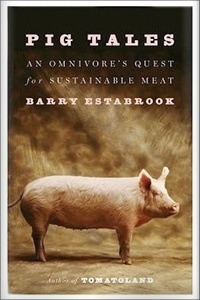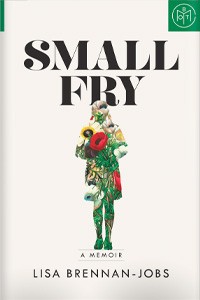

Nonfiction
Pig Tales
by Barry Estabrook
Quick take
The good news for meat eaters… is that, according to Estabrook, you don't have to give up bacon, just the mass-produced kind.
Why I love it
Christopher Cox
Harper's Magazine
Fourteen years ago, my brother read Eric Schlosser's Fast Food Nation. I had recently become a vegetarian, so I was delighted when, after finishing the book, he announced that he was forever forswearing meat. A week later, that vow became a promise to avoid McDonald's whenever possible. A week after that, he was back in line for the drive-through.
Fast Food Nation, Michael Pollan's The Omnivore's Dilemma, Jonathan Safran Foer's Eating Animals: for as long as there have been factory farms, there have been books documenting their evils. None of them has had more than a marginal effect on the meat industry, but there's reason to believe that Barry Estabrook's clearheaded dissection of the pork industry, Pig Tales, will fare better.
Estabrook walks the reader through the arguments for ending intensive pig farming like a detective building his case; despite its serious subject, the book is a page-turner. He begins by describing the intelligence and social lives of pigs themselves; one chapter is devoted to a "highly sociable piglet" named Christopher who "adored belly rubs." Then he goes in for the (rhetorical) kill. "Factory-raised meat may be cheap, but those inexpensive chops come at a cost. No facet of modern food production does as much harm to the environment, the animals it raises, and the people it employs as the pork industry." And the meat, Estabrook says, doesn't even taste good anymore.
The villains of Pig Tales are the giant corporations that process nearly 70 percent of all the hogs in this country. The heroes are individual producers like Jennifer Small and Michael Yezzi, who run their small farm humanely, with concern for the pigs and the farmworkers alike. It's on operations like theirs that Estabrook pins his hope for the future. The good news for meat eaters, and the reason I think Pig Tales might persuade a good number people to change their diets, is that, according to Estabrook, you don't have to give up bacon, just the mass-produced kind. I'm going to stick with the veggies, but I think I've found my brother's next birthday gift.

















